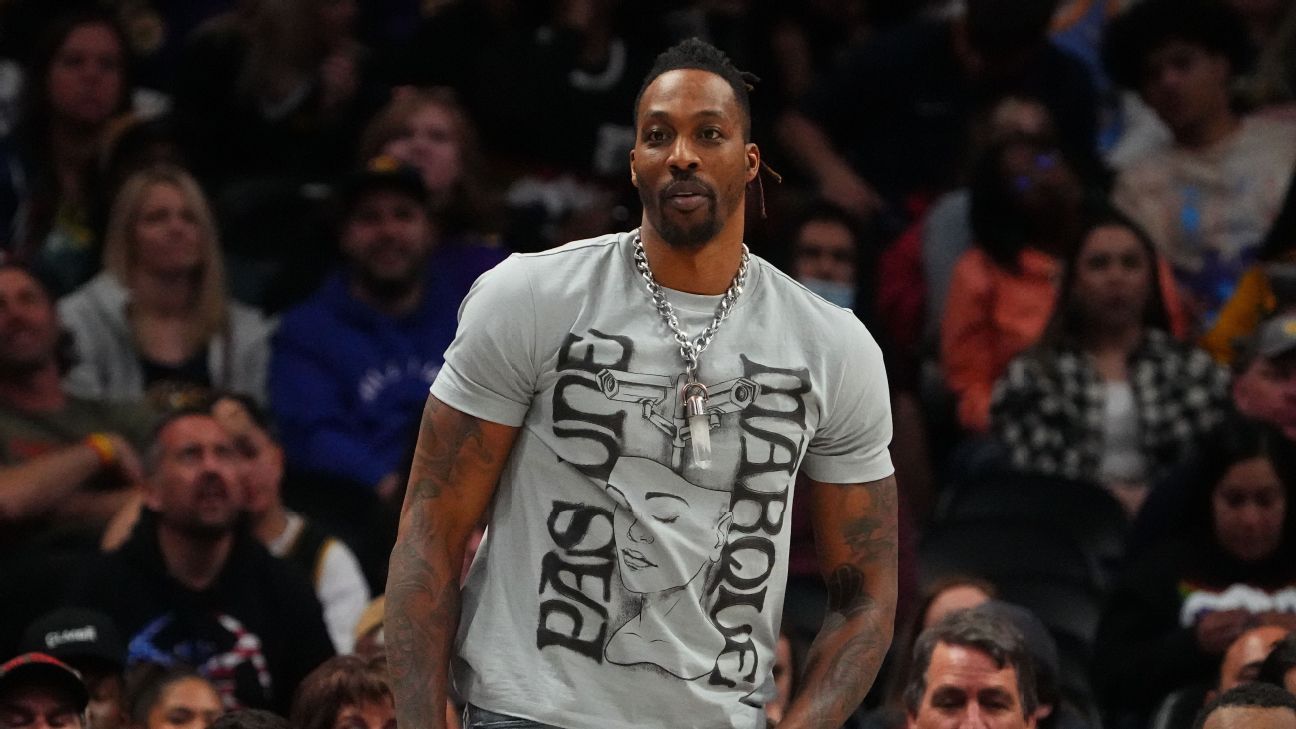A businessman from Georgia was found guilty by a federal jury in Manhattan on Friday, facing five counts related to defrauding former NBA players Dwight Howard and Chandler Parsons of a total of $8 million in 2021.
Calvin Darden Jr. was convicted on charges of fraud, bank fraud, money laundering, and two counts of conspiracy. Darden participated in various schemes alongside former NBA agent Charles Briscoe, who admitted guilt in the case last year.
Evidence presented by prosecutors revealed that Howard transferred $7 million to Darden, believing it was part of an effort to acquire the WNBA team, the Atlanta Dream.
Editor’s Picks
Parsons fell victim to a deceptive investment concerning the career advancement of former No. 2 draft pick James Wiseman. Prosecutors have indicated they intend to seek a prison sentence of 11 to 14 years for Darden, who was previously convicted for a multimillion-dollar fraud scheme in 2016.
The jury, after a two-week trial, deliberated for five hours before reaching their decision. During the proceedings, evidence showed that Darden utilized $6.1 million of Howard’s $7 million payment on luxury items, including two cars—a Lamborghini, a $110,000 piano, and $90,000 worth of watches—as well as funding a $3.7 million home purchase in Atlanta. Howard provided testimony against Darden during the trial.
In November, Briscoe was sentenced to three months of home confinement and three years of supervised release for one count of wire fraud.
This case was part of a broader series of charges and arrests initiated by the Southern District of New York last year. Next year, Darryl Cohen, a former financial adviser from Morgan Stanley, is scheduled to face trial over allegations of defrauding several individuals, including Boston Celtics star Jrue Holiday.
The Associated Press contributed to this report.
Georgia Businessman Convicted of Defrauding NBA Stars Dwight Howard and Chandler Parsons of $8 Million
Case Overview
In a significant legal development, Calvin Darden Jr., a Georgia businessman, has been found guilty of defrauding former NBA players Dwight Howard and Chandler Parsons out of a staggering $8 million. The conviction, which occurred on October 4, 2024, highlights the serious issues of fraud and deceit in high-stakes financial dealings, particularly involving professional athletes who often face unique vulnerabilities in their financial management.
Details of the Fraud
The fraudulent activities orchestrated by Darden involved elaborate schemes that misled Howard and Parsons regarding investment opportunities. The case demonstrated a classic example of trust being exploited, as both former NBA stars were led to believe they were making sound financial investments. Instead, they fell victim to Darden’s deceptive practices, which were ultimately uncovered through diligent investigation.
Key Players Involved
- Calvin Darden Jr.: The convicted fraudster who misled the NBA players.
- Dwight Howard: 15-time NBA All-Star and former NBA champion.
- Chandler Parsons: Notable NBA player known for his successful career with several teams.
Legal Proceedings
The legal proceedings against Darden were extensive and involved multiple hearings before the jury reached a verdict. The prosecution presented a compelling case that revealed the depth of Darden’s deceit. The jury deliberated on the evidence, including financial records and testimonies that illustrated how Darden manipulated the athletes’ trust for his gain.
Impact on NBA Players
This case serves as a cautionary tale for athletes, especially those who may not have extensive financial backgrounds. The following are key takeaways regarding the impact of such fraud on NBA players:
- Financial Literacy: Many athletes lack the financial education needed to navigate complex investment opportunities.
- Vulnerability to Scams: High-net-worth individuals are often targeted by fraudsters due to their wealth.
- Importance of Due Diligence: Thorough vetting of financial advisors and investment opportunities is crucial.
Preventive Measures for Athletes
To protect themselves against fraud, athletes can adopt several preventive measures:
- Engage Trusted Advisors: Work with financial advisors who have a proven track record and are certified.
- Educate Themselves: Invest time in understanding basic financial principles and investment strategies.
- Conduct Background Checks: Always verify the credentials and history of anyone offering financial opportunities.
Lessons Learned from the Case
This case not only highlights the need for vigilance among NBA players but also underscores broader themes relevant to anyone managing substantial financial resources. Key lessons include:
- Trust Carefully: Building relationships with financial professionals is essential, but trust should be earned through transparency and results.
- Understand Investments: Take the time to understand where your money is going and the risks involved.
- Seek Multiple Opinions: Don’t hesitate to get a second opinion on investment opportunities.
Case Studies of Similar Incidents
Historically, there have been numerous cases where athletes have fallen victim to financial fraud. Some notable examples include:
| Case | Fraudster | Amount Lost | Year |
|---|---|---|---|
| Bernie Madoff Scandal | Bernie Madoff | $170 billion | 2008 |
| Anthony Carter | Paul Haggerty | $4 million | 2013 |
| Michael Vick | Various | $20 million | 2007 |
Financial Recovery Strategies
For athletes who fall victim to fraud, recovery can be challenging but not impossible. Here are some strategies that can help:
- Legal Action: Consult with legal professionals to explore options for recovering lost funds through litigation.
- Financial Counseling: Engage with financial counselors to rebuild financial health after a fraud incident.
- Investment Diversification: Focus on diversifying investments to mitigate risks in the future.
Conclusion
While this section is intentionally blank, it’s important to note that the conviction of Calvin Darden Jr. serves as a reminder of the potential pitfalls that high-profile athletes can face in their financial journeys. The case emphasizes the importance of vigilance, education, and the necessity of establishing a trusted support network to safeguard wealth. By taking proactive steps, athletes can better protect themselves from similar situations in the future.



